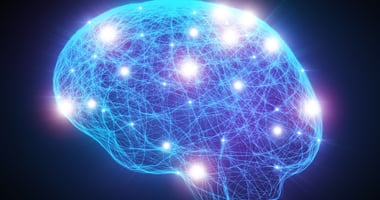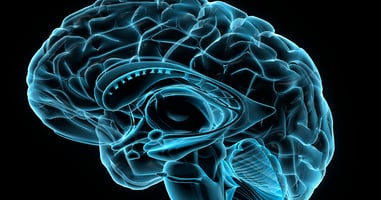Patients with bipolar depression who are not responding to pharmacotherapy may benefit from add-on...
Transcranial Direct Current Stimulation Found to Improve Cognition in Patients With Depression
 |
“Research has found that unipolar depression can reduce processing speed, decrease attention, and impede executive function, and that bipolar disorder can adversely affect working memory,” wrote Shawn M. McClintock, Ph.D., M.S.C.S., of UT Southwestern Medical Center and colleagues. Although previous studies have suggested that tDCS has antidepressant effects, less was known of the neurocognitive effects of the therapy.
This study enrolled 130 adults 18 and older with unipolar or bipolar depression who had been experiencing a major depressive episode for at least four weeks. The participants were randomized to receive 20 sessions (given on consecutive weekdays over four weeks) of either high-dose tDCS (2.5 mA for 30 minutes) or low-dose tDCS (0.034 mA for 30 minutes). Afterwards, all participants had the option to continue with four weeks of open-label, high-dose tDCS treatment.
At baseline, after four weeks, and after eight weeks, the researchers assessed participants’ mood as well as verbal learning, memory, selective attention, auditory attention, working memory, psychomotor processing speed, visuospatial attention, and verbal fluency.
Participants in the high- and low-dose tDCS groups experienced mood improvements over the eight-week period. “The study found across all patients and time, that there were improvements in verbal learning and memory, selective visual attention, auditory attention, and information processing speed in both the low- and high-dose tDCS conditions, which were independent of mood effects,” McClintock and colleagues wrote.
They concluded, “The tDCS associated neurocognitive effects require further investigation and replication, which is clinically important as such investigation could provide information to develop personalized tDCS therapeutic approaches to target specific cognitive functions and improve the utility and efficacy of this noninvasive neuromodulation treatment.”
For related information, see the Journal of Neuropsychiatry and Clinical Neurosciences article “Noninvasive Brain Stimulation: Challenges and Opportunities for a New Clinical Specialty.”
(Image: iStock/Henrik5000)
Have You Voted in APA’s 2020 Election Yet?
 |





